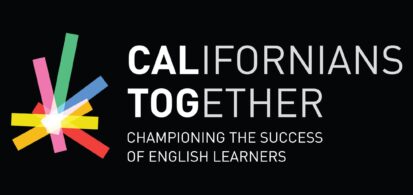Report on 2nd Year of LCAPs Calls for the State, Districts and County Offices of Education to Make the Remaining Years of LCFF about Closing Gaps and Raising Levels of Language and Academic Growth
SACRAMENTO, CA (April 5, 2016) – A second report that reviewed the Local Control Accountability Plans (LCAPs) of 29 key school districts throughout the state, and the impact those LCAPs are having on English Learner students, was released today by Californians Together. This report is a follow-up to the year 1 report released in May 2015 and serves to document the key differences between first and second-year LCAPs in demonstrating increased or improved services to English Learners.
The report, titled “A Review of Year 2 LCAPs: A Weak Response to English Learners,” found that LCAPs are distressingly weak in identifying English Learner needs, building capacity to serve English Learners, and supporting the program and services that are responsive to English Learners. In addition, the study, which was conducted in collaboration with the Center for Equity for English Learners at Loyola Marymount University, found that the usefulness of the LCAP as a means of accountability is compromised by the difficulty in gleaning a sense of a coherent approach to comprehensively address the pressing needs of English learners.
“If the districts, state and county offices are going to live up to the equity principle of the Local Control Funding Formula (LCFF) and LCAPs, they need to seize the opportunity to define the needs and develop comprehensive, research-based approaches, programs and services to once and for all make the remaining years of LCFF about closing gaps and raising the level of language and academic growth for English learners at the core of their work,” said researcher and report co-author Laurie Olsen of Californians Together.
The same sampling from the Year 1 report of districts with the largest English Learner enrollment, high percentage of English Learners and several with a history of comprehensive services for English Learners were included in the report. These 29 districts constitute 32 percent of all of California’s 1.4 million English Learners.
“As it is functioning now, the LCAP is far from adequate as an accountability mechanism to target funds and ensure equity and access to educational services to ELs”, concluded Dr. Magaly Lavadenz, author and Director for the Center for Equity for English Learners, Loyola Marymount University.
Among the key findings presented in the report
- The general patterns of LCAP’s non-responsiveness to English Learners are similar to Year One.
- LCAPs showed very minimal and weak attention to implementation of the new English Language Development (ELD) Standards
- LCAPs demonstrated minimal investment in building the capacity of teachers to meet the needs of ELs.
- The vast majority of LCAPs lack specific attention to strengthening or providing EL coherent programs and services.
- Engagement of EL parents in both the LCAP process and implementation remains very weak.
- It is difficult to discern district-wide services and school site allocations supported by supplemental and concentration grant funds.
- English Learner data was seldom cited as informing LCAP goals, and the use of English Learner indicators appears quite weak as a component of LCAP accountability.
Xilonin Cruz-Gonzalez, President of Californians Together: “ We were very disappointed that once again the district LCAPs did not include goals, programs and services specific to accelerating the language and academic growth of ELs. This report can be a valuable tool for engaging and informing policy and practice at the local and state levels to strengthen LCAP development and program implementation for English Learning moving forward. In addition, It also serves as a clear call to action for both local and state policymakers to guarantee that the remaining years of the LCFF delivers on the equity promise to California’s 1.4 million English Learners.”
